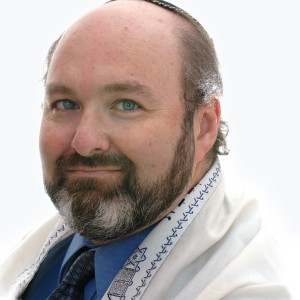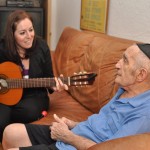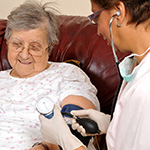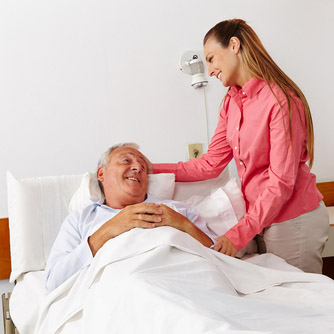
For Religious Leaders
בְּיָדוֹ אַפְקִיד רוּחִי בְּעֵת אִישָׁן וְאָעִירָה
וְעִם רוּחִי גְוִיָּתִי יְיָ לִי וְלֹא אִירָאIn Your hand I place my soul, when I sleep and when I wake up, for when Your spirit is with me, my God is with me and I will not fear. (from liturgy, Adon Olam)
Supporting your congregants as they consider end-of-life options can be difficult. You will likely be forced to confront your own values about quality and quantity of life. Working alongside the Jewish hospice or palliative care practitioner, the religious leader can help create an environment where open conversation is encouraged and supported.
We will continue to update the site with information and resources to enable having meaningful conversations with your community.
Send us your ideas for sermons and congregational programs.
-
Congregational Conversations
Curious about how you might encourage your congregants to speak more openly about Jewish end of life care options? There are multiple ways to promote such awareness (via a sermon, congregational program, education initiative, etc.), and the Center for Jewish End of Life Care is happy to provide samples, suggestions, and frameworks you may find useful for your community.
Here are some samples of ways other Jewish religious leaders have approached the conversation in their congregations, synagogues, and communities:
- Amy E. Goodman weaves an exploration of aging into a Jewish perspective by invoking Dr. Atul Gawande’s Being Mortal into Parashat Shelach Lecha– with the entire people of Israel on the eastern bank of the Jordan River and poised to enter the land promised to them. She compares the fear of the unknown and tales of the shlichim of the Negev with the current day harbingers of aging. Please provide your email address to download Ms. Goodman’s d’var torah.
- Rabbi Janet Marder of Beth Am (in Los Altos Hills, CA) wrote an informative piece titled Facing the End Like a Mensch that both introduced hospice care to her community and highlights volunteer-efforts to provide emotional support.
- Congregation Rodeph Sholom in New York City prepared a useful booklet, Preparation and Consolation: A Jewish Guide to the End of Life, to both educate about end of life issues and help readers feel more comfortable discussing those issues. The booklet is available as a PDF for download on the congregation’s End of Life resources page. If you have any questions regarding the PDF or how to best implement it in your community, you can direct your queries to Rabbi Leora Kaye.
If you have already started the conversation in your community guides for Torah Study and Personal Reflection are available here.
Please share your examples with us.
- Amy E. Goodman weaves an exploration of aging into a Jewish perspective by invoking Dr. Atul Gawande’s Being Mortal into Parashat Shelach Lecha– with the entire people of Israel on the eastern bank of the Jordan River and poised to enter the land promised to them. She compares the fear of the unknown and tales of the shlichim of the Negev with the current day harbingers of aging. Please provide your email address to download Ms. Goodman’s d’var torah.
-
Torah Study Guides
Torah Study Guides and Personal Reflections related to Jewish End of Life Care
Building a Home with God: Finding Meaning in our Physical and Spiritual Lives
In the weekly Torah reading, Parshat Terumah, we read the instructions for building the mishkan, the biblical home for God. God commands, וְעָשׂוּ לִי מִקְדָּשׁ וְשָׁכַנְתִּי בְּתוֹכָם, 'They will make Me a sanctuary, and I will dwell among them' (Shemot 25:8). Rashi describes this home as בית קדושה, a home of holiness, toward which each person gives according to ability. Yet, as we read these descriptions of God's biblical home, we cannot help but feel the reality that today we do not have the Temple, the biblical model for God's home. If you were going to build a home for God in your life right now, what would it look like?Comforting Community of Strangers: Parshat Mishpatim and Our Response to Suffering
In Parshat Mishpatim, God gives the Israelites much of the laws that guide human interactions. God requires Jews to act with empathy, justice, and honesty. Twice, God reminds the Israelites that they may not oppress the stranger, for you know the suffering of the stranger, 'כִי גֵרִים הֱיִיתֶם בְאֶרֶץ מִצְרָיִם (for you were strangers in the land of Egypt).' (Exodus 22:20, 23:9). If you know what it is to suffer, you will not cause another pain. The weekly reading shows us that our struggles not only inform our future actions but afford us the opportunity to be better people.Let the Light Shine – Isolation and the Plague of Darkness
The weekly Torah reading, Bo, 'Come', describes the biblical plague of darkness. While we usually understand this plague as an embodiment of God's might, we may instead explore the plague of darkness as an insight into the human experience of isolation. We often describe loneliness and hopelessness as a state of darkness, a predicament in which we are unable to see light or hope. We are rendered frozen and helpless to respond proactively or even logically to our pain. We see no one else but ourselves and internalize a pervasive sense of otherness.Vayechi 'He Lived' – Finding Life and Blessing at the End of Life
The weekly Torah reading entitled Vayechi, 'He lived', details the final moments of our ancestor Jacob's life. As illustrated in this poignant title, Jewish tradition values a life lived, with its ups and downs, even in the midst of death. For those who are given the opportunity to be with their loved ones at the end of life, comfort and quality of life have the ability to transform a time wrought with pain and worry into one of lasting love and peace.Please provide your email to access: Vayechi: Source Sheet for Text Study
-
NYC Synagogue Partnership Programs
“As we begin planning future events together I just want to reiterate how much we have enjoyed working with MJHS. Your talented team has significantly enhanced and broadened this community’s awareness on end-of-life concerns (both from a lay and professional perspective). We look forward to future collaboration and continued learning together.”
Rabbi Steven I. Rein
Park Avenue SynagogueThanks to a grant from the Caring Commission of UJA-Federation of New York, the Center for Jewish End of Life Care is pleased to provide numerous opportunities for training and partnership regarding end-of-life issues within a Jewish context for synagogues in the New York City metro area. The following is a list of the specialized training sessions offered.
Education for Congregational Members
- Includes fundamentals of Jewish end-of-life care options
- Clarifies and distinguishes between concepts
- Debunks common misconceptions re: hospice care
- Covers impact of recent health care legislative changes on patients and families
- Lead by a senior medical officer, rabbi, and social worker alongside the congregational rabbi
Hospice Volunteer Training for Congregational Bikur Cholim Groups
- Increases hospice literacy of existing Caring Committee/Bikur Cholim groups
- Assists synagogues to establish Bikur Cholim programs
- Training includes how to help children of seriously ill patients express themselves through Art & Soul™ program
Writing the Last Chapter Together
- A discussion that raises awareness about having the conversation with oneself and one’s loved ones prior to end of life
- Select partner synagogues will host this community-awareness symposia on end-of-life issues
- Open to all lay and professional congregants from surrounding synagogues and community
- Keynote speakers will be recognized experts from CLAL – The National Jewish Center for Learning and Leadership.
Caring for Holocaust Survivors with Dignity and Respect
- Understanding the impact of trauma on Holocaust Survivors at end of life
- Initiating difficult conversations
- Challenges of caring for survivors at end of life
Education for Medical/Health Care Practitioners from the Congregation
- Addresses unique professional and emotional challenges targeting this audience
- Explains the role a Primary Care Physician/Specialist can maintain in patient’s care while on hospice
- Introduces the spiritual journey of the terminally ill patient
- Covers impact of recent health care legislative changes on physicians and patients
- Lead by a senior medical officer, rabbi, and social worker alongside the congregational rabbi
If you are interested in bringing any of the following workshops and training sessions to your NYC-based synagogue or Jewish community, please contact Toby Weiss, Director of Cultural Sensitivity and Jewish Programming, MJHS Hospice and Palliative Care.
-
Spiritual Resources
Jewish Perspectives on End of Life Care
- “End-of-life: Jewish perspectives” by Rabbi Elliot Dorff
- “Reflections on Palliative Care from the Jewish and Islamic Tradition“ by Rabbi Michael Schultz, Kassim Baddarni and Dr. Gil Bar-Sela
- “Bridging with the Sacred: Reflections of an MD Chaplain,” by Bruce Feldstein
- “Chaplains & Physicians,” by Dr. Jason Mann
- “Jewish Law (Halachah) and Medical Decision-Making,” AJAS Journal on Jewish Aging
- Prolonging Life in the Shadow of Death: Where Halacha Guidelines and Medical Expertise Meet
- “Increasing Access to Palliative Care for the Orthodox Jewish Community”
- MJHS Guidebook: Caring for Holocaust Survivors with Sensitivity at the End of Life
- “Halachic Pathway” and Chayim Aruchim (Center for Culturally Sensitive End of Life Advocacy and Counseling)
Spiritual Leadership
- Facing the End Like a Mensch by Rabbi Janet Marder
- Initiating Palliative Care Conversations: Lessons from Jewish Bioethics
- Mishkan R’fuah: Where Healing Resides
- Ceremony for Entering a Nursing Home, Rabbi Cary Kozberg
- A Collection of Jewish Quotes on Visiting the Sick, Sh’ma
- Medicine’s Growing Spirituality by Laura Landro
Facilitating Conversations
- Talking about Dying, by Rabbi David Tetsch
- Jewish Sacred Aging: A Jewish community forum dedicated to discussing issues for Boomers and their parents
- Give Me Your Hand: Traditional and Practical Guidance on Visiting the Sick
- Beforef Hayamin: In the Winter of Life: A Values-Based Jewish Guide for Decision-Making at the End of Life
- Congregation Rodeph Sholom’s “End of Life Preparation and Consolation: A Jewish Guide to the End of Life
Professional Resources/Associations
- Jewish Sacred Aging: A Jewish community forum dedicated to discussing issues for Boomers and their parents
- The New Old Age The New York Times Blog: Exploring the intergenerational efforts to care for our aging parents
- The National Association of Jewish Chaplains
- Making Sacred Choices at the End of Life and Making Decisions at the End of Life
- Jewish Lights Publishing searchable listing of their publications





